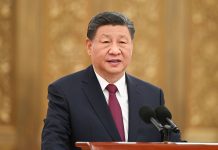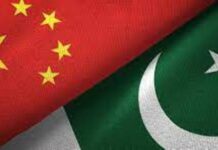Bingz, a Chinese crispy burger brand with about 500 stores in China, opened its first North American store in Canada in 2021. Its star product is the adapted roujiamo, a Chinese snack resembling a hamburger with shredded meat and mild peppers stuffed into flat buns that originated in Shaanxi Province in northwest China. It has now opened three restaurants in Canada.
iMpact, a global communications and business consulting group based in New York City, was a part of Bingz’s overseas marketing success.
According to Chris Pereira, CEO of iMpact, the group helps Chinese companies build their businesses and expand their markets overseas, especially in North America, Europe and Singapore. In addition to Bingz, iMpact also works with Chinese brands such as online car dealer Carnex and New Link, a company specializing in energy digitization, on their globalization strategies.
“China is moving up the global value chains. Its technology can lead a new wave of economic growth at home and abroad, benefiting both the country and the world,” Pereira told Beijing Review at the inaugural China International Supply Chain Expo (CISCE).
As the world’s first national-level supply chain expo, the CISCE, which focuses on promoting global industry and supply chain cooperation, took place in Beijing from November 28 to December 2. Themed Connecting the World for a Shared Future, the expo covered an exhibition area of over 100,000 square meters and included exhibitions on intelligent vehicles, green agriculture, clean energy, healthy living and digital technology. More than 500 Chinese and overseas enterprises and institutions participated in the event.
According to a report on global supply chains released during the event, China, with its huge market, completed industrial systems, opening-up policies and innovation, has delivered new opportunities to global supply chain cooperation.
“China’s economy has become deeply integrated into global value chains. Multinational companies first turned China into a global export platform before reaping the benefits of the sheer size of the market. This process of value chain splicing has allowed for the realization of efficiency gains from specialization. China has become a manufacturing power and an even more important supplier of intermediate inputs,” Margit Molnar, head of the Organization for Economic Cooperation and Development’s China desk, told Beijing Review.
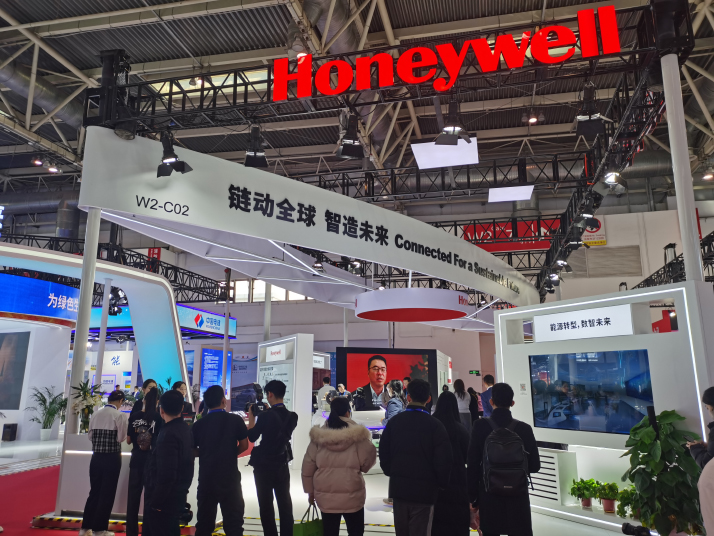
Stronger presence
U.S. companies are active participants in the CISCE, accounting for about 20 percent of overseas traders. The companies have been expanding business in China and for China, growing with the Chinese market and promoting smart and green growth here. At the expo, U.S. chipmaker Qualcomm showcased several smart technologies, including artificial intelligence-based image creation models on Android phones jointly developed with Chinese technology company Xiaomi.
With a wide range of battery and power bank products, Farasis Energy (Ganzhou) also attracted much attention. The lithium-ion battery company was developed by the U.S.-based new energy company Farasis Energy together with the government of Ganzhou, Jiangxi Province, in 2009. To date, it has built production bases in four Chinese provinces.
China is becoming an increasingly important part of many companies’ global industrial chains. At the expo, U.S. industrial conglomerate Honeywell showcased its sustainability and digitalization solutions in the areas of energy transition, air travel, smart buildings and intelligent manufacturing. Approximately 60 percent of its research and development (R&D) investment for new product introductions in 2022 was focused on environmental, social and governance (ESG) outcomes.
Honeywell is cooperating with Chinese firms on low-carbon businesses, such as providing the low global warming refrigerant for Chinese electric carmaker Nio. It has also partnered with Zhejiang Jiaao Enprotect Stock Co. Ltd. and Sichuan Jinshang Environmental Protection Technology Co. Ltd. to build sustainable aviation fuel production bases, providing sustainable aviation fuels converted from a range of renewable feedstocks, William Yu, President of Honeywell China, told Beijing Review. Its sustainable aviation fuel helps reduce greenhouse gas emissions up to 80 percent compared to the emissions from fossil fuels.
The company has increased local R&D efforts to meet the needs of Chinese consumers. “In addition to introducing advanced technologies in the fields of energy transition and sustainability, Honeywell also works with Chinese partners in innovation to meet the upgrading needs of the Chinese market,” Yu said. He noted that R&D employees account for a quarter of Honeywell’s total workforce in China, with research teams based in cities including Beijing and Shanghai.
U.S. coffee chain Starbucks, which has been operating in the Chinese market for more than two decades, thus far has opened over 6,800 outlets across China. According to Hong Hong, an employee of the company, it has built a coffee farm in southwest China’s Yunnan Province, a subtropical region with favorable natural conditions for growing coffee beans.
“Starbucks has provided free training to local coffee growers and incentivized the growing of high-quality beans. Over the past decade, the proportion of Yunnan coffee beans that pass Starbucks’ quality tests has risen from 20 to 80 percent,” Hong told Beijing Review.
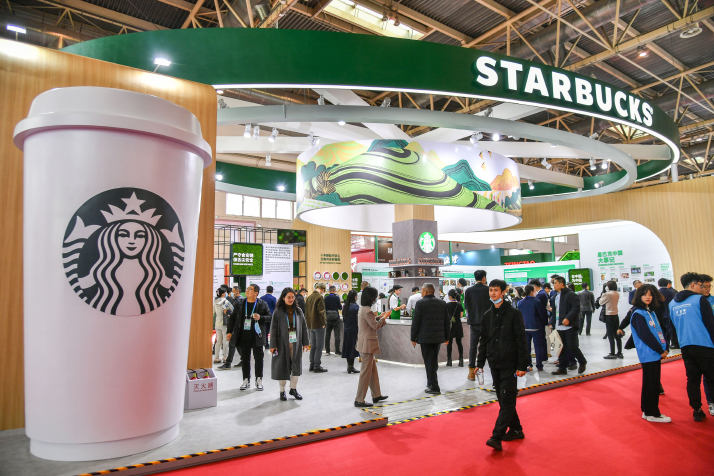
Closer cooperation
Agriculture is a major field of cooperation between China and the U.S. The U.S. Grains Council, a nonprofit organization, focuses on promoting the export of American agricultural products and has been active in China since 1982. “China has been a great partner of the U.S. on agriculture, which has been mutually beneficial. U.S. agricultural commodities like corn, soybeans and meat have been part of the food systems here in China for many years,” Manuel Sanchez, the council’s China director, told Beijing Review.
According to Sanchez, the COVID-19 pandemic and regional conflicts put constraints on global supply chains. In the post-pandemic era, many challenges remain. Agriculture is key to ensuring access to goods for people around the world.
“China and the U.S. probably have the best mutual understanding and cooperation in the area of agriculture, which is important for both countries. Hopefully, the two countries will continue the partnership in the years to come,” Sanchez said.
Cross-border e-commerce is also connecting the Chinese and American markets. Newegg, an American e-commerce platform founded in 2001, a leading global online retailer for PC hardware, consumer electronics, gaming peripherals, home appliances, automotive and lifestyle technology. Newegg also serves businesses’ e-commerce needs with marketing, supply chains and technical solutions. It opened up to Chinese e-commerce merchants in 2019, and has helped Chinese sellers reach the North American market.
“Newegg provides warehousing and logistics services in North America for Chinese e-commerce sellers, which reduces transportation costs and enhances efficiency. During the Black Friday shopping festival this year, Chinese sellers performed remarkably on the platform,” Sun Shihuang, the company’s China strategy director, told Beijing Review. She added that the platform also improves logistics, facilitating the return and repair of goods to improve after-sales services for Chinese vendors.
According to Sun, Chinese products have become increasingly popular overseas through social media platforms as well. As e-commerce is based on the real economy, China’s advantage of having complete supply chains has played a key role, enabling the efficient delivery of goods. Products with special design or smart features are popular with overseas consumers.
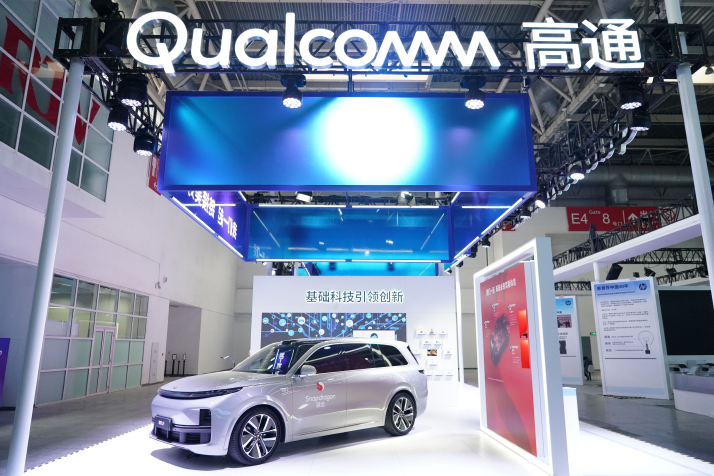
Great expectations
Many of the international exhibitors expressed a positive outlook on the Chinese market.
According to Pereira, China is moving from exporting products to bringing management techniques and brands overseas. Chinese enterprises are building global factories and are hiring local staff to run their business overseas.
As Lars Rickard Ingvarsson, Asia CEO of Scan Global Logistics (SGL), a Denmark-based logistics company, told Beijing Review, China always has been and always will be an important market for his company.
“We have great expectations for our business in China. SGL has developed 15 sites here and will build four to five new stations across the country next year,” Ingvarsson elaborated.
The global supply chains have seen a lot of disruptions in recent years. Some manufacturing industries are moving out of China to Southeast Asia, Latin America, Africa and Europe. But there is still a huge need for China to play a big role in the global supply chain and trade.
China has a strong focus on sustainability, driving the renewable energy industry, especially solar panels and electric vehicles (EVs). Many related Chinese brands are expanding beyond the country’s borders, such as EV manufacturers BYD and Xpeng, and SGL hopes to play a role in this, Ingvarrson said. There is a new era and a new way for China to play an even more important role in the future.
As Ingvarsson introduced, SGL is operating in many first-tier cities in China, and is expanding to cities in the western region like Chengdu in the southwestern province of Sichuan and coastal regions in the east. While big cities are key markets, it expects to open up more new offices in lower-tier cities.
Rising role of China
While multinationals are developing more and more production stages in China to meet their domestic demand, Chinese firms moving up the value chains are also able to produce increasingly sophisticated components.
The forward integration of Chinese firms into global value chains is increasing. “In other words, foreign exports are increasingly dependent on inputs from China,” Molnar said.
She noted that China’s share of foreign added value in Indonesia’s exports is about 20 percent, and in the case of Japan, the Republic of Korea, Australia or the U.S., it is about 15 percent—or more. Foreign investment by Chinese companies has increased rapidly in recent years.
Molnar said China’s recent extension of visa-free travel to an additional six, mostly European, countries, a trial policy that took effect on December 1 and will remain in place until November 30, 2024, would likely increase interest in destinations in China.
Government policies, including making digital services necessary for travel in China, such as mobile payment, online ordering and car-hailing, more accessible to foreigners, are also upping the market’s appeal. –The Daily Mail-Beijing Review news exchange item


